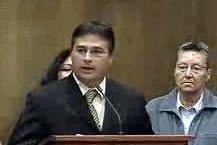Politics of Food: Chasing Fraud In Low-Income Areas

While the news of a judge blocking the voter ID regulation in South Carolina is encouraging, a law requiring fingerprints for Food Stamp/SNAP application in New York is still on the books. Opponents of the voter ID laws claim these regulations are in violation of the Voting Rights Act because they target minorities, thus reducing their likelihood of voting. The voter ID regulations in South Carolina and other states are simply laws chasing fraud where it does not exist or is misguided because of the negligible number of cases. Simply put: these regulations, like the fingerprinting requirement, are targeting poor people in unjust ways. As the Food Research and Action Center noted in their recent news digest, a January 1, 2012 New York Times editorial argued for ending the practice of fingerprinting SNAP applicants. “Especially at a time when so many families are struggling, the Bloomberg administration should drop the [fingerprinting] requirement that leads to many New Yorke...






